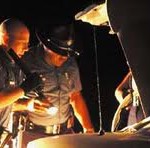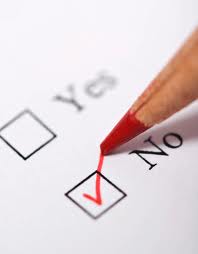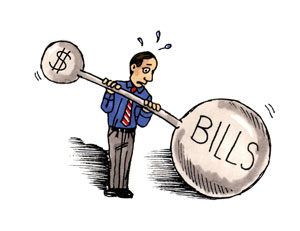The vast majority of qualified personal injury lawyers do not advertise on TV. There are, however, a very small by noticeable group of lawyers that spend a huge amount of money advertising on TV and radio and on the pages and backs of the Yellow Pages. There is nothing illegal or unethical (according to the rules that govern lawyers) about this type of marketing. Nothing. However, most lawyers in the personal injury business have decided to let their experience and reputation do the talking for them. And many lawyers these days have opted to promote their practices through web sites and social media - which is far less costly (and arguably more dignified) than TV, radio and the Yellow Pages. Regardless of how you hear about a lawyer you may hire, here are the questions that we believe that you absolutely need to ask:
1. Is the lawyer you are first talking to the same lawyer that will stay with your case till the end - including trying the case if the parties cannot settle? Many of the faces you see on TV and in phone book ads are not the lawyers who will actually handle your case or try your case - and you should know that up front. So ask this very important question at the very beginning of your search. The lawyer you meet with should be the lawyer who handles all lawyer aspects of your case.
2. Has the lawyer you are talking to actually tried a personal injury case in the last 24 months? If the answer to this is no, then you need to ask why - and then ask specifically what type of cases this lawyer has actually tried - and when this lawyer tried them. Trying cases is like anything else - your skills stay tuned if you keep in the game.
3. Has your lawyer presented cases in front of all or most of the judges in the courthouse? Most active and experienced lawyers appear on a regular basis in front of almost all of the judges of the local courthouses. Each judge has his or her own particular way of doing things, and the experienced lawyers often know these particularities well.
4. What specific experience does the lawyer have in dealing with "subrogation" issues? "Subrogation" issues involve legal and enforceable claims that medical providers and medical insurance companies have to any of the settlement or verdict monies that an injured person receives from the tortfeasor. This has become an extremely complicated area of personal injury law - and the rules seem to change almost monthly. In that regard, make sure that your personal injury law firm has experience on these issues and is staying on top of the emerging law on these issues. Subrogation issues have serious bottom line effects on the net proceeds an injured party can obtain for the injury.
So when you talk to a lawyer you are considering hiring for your personal injury claim, ask these very important questions.
 The Supreme Court of the United States issued an opinion today which ratifies the current police procedure of collecting DNA samples from many arrested individuals for storage in a DNA database - just like they have done for decades with fingerprints and photographs. One of the persons arrested by the police and who had his DNA collected took his objections all the way to the Supreme Court of the United States under the claim that the collection of the DNA violated his constitutional right from unreasonable search and seizure.
The United States Supreme Court, in a narrow 5-4 decision, disagreed. They held that the collection of DNA from arrestees of "serious offenses" could be taken for the same reasons they take fingerprints and photographs. The Court held there was no fundamental difference between the science behind fingerprints and DNA.
The Supreme Court of the United States issued an opinion today which ratifies the current police procedure of collecting DNA samples from many arrested individuals for storage in a DNA database - just like they have done for decades with fingerprints and photographs. One of the persons arrested by the police and who had his DNA collected took his objections all the way to the Supreme Court of the United States under the claim that the collection of the DNA violated his constitutional right from unreasonable search and seizure.
The United States Supreme Court, in a narrow 5-4 decision, disagreed. They held that the collection of DNA from arrestees of "serious offenses" could be taken for the same reasons they take fingerprints and photographs. The Court held there was no fundamental difference between the science behind fingerprints and DNA.




















